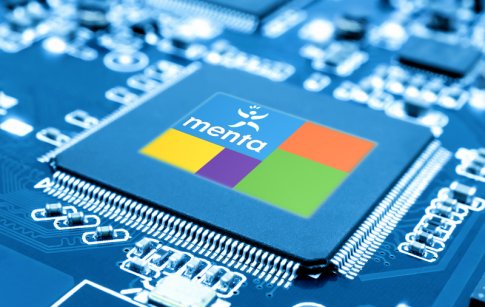Embedded FPGAs from Menta qualified for GLOBALFOUNDRIES' Advanced 14nm FinFET and 32nm SOI Process Technologies
eFPGAs enable built-in programmability in SoCs targeting defense, aerospace, ADAS, IoT and data center applications
Montpellier, France – September 19, 2017 – Menta today announced that its embedded FPGA (eFPGA) IP is fully qualified for GLOBALFOUNDRIES’ (GF) advanced 14nm FinFET and 32nm SOI process technologies. Offered as part of GLOBALSOLUTIONS® Ecosystem, the eFPGA IP provides designers with a fully programmable FPGA fabric that can be embedded into any design. The eFPGA fabric allows modifications to the hardware both during development and post manufacturing, thereby reducing development time and cost.
GF’s advanced 14nm low power process (LPP) is ideal for meeting the requirements of reliability, power, stability and size of co-processing required of complex next-generation SoCs such as those used in defense, aerospace, ADAS, networking and data center systems. These characteristics were recently demonstrated in an eFPGA used by a large aerospace company in the United States.
“Menta is a great addition to GF’s 32nm SOI and 14LPP IP portfolios,” said David Sobczak, director of A&D program management and Trusted Foundry at GF. “Their standard-cell based eFPGA IP and associated software provides customers with a solution that enables flexibility and programmability in their designs. These are critical to implement customer-specific features that enable fast development and long lifetime for chips.”
Menta’s eFPGA IP comes with customer-defined array sizes for the embedded logic blocks (eLB), embedded application blocks (eAB), and embedded memory blocks (eMB), each of which are customizable in type, number and size to address various markets and applications. The eFPGA IP cores are designed for standard test compatibility with all common test solutions, featuring fault coverage up to 99.8%.
The eFPGA technology is supplied with Menta’s proven Origami tool chains, including RTL synthesis in VHDL, Verilog or SystemVerilog, as well as support for SDC application design constraints. Menta eFPGA can be fully verified within the customer’s existing design flow.
"Menta is thrilled to collaborate with an industry leader like GF to deliver eFPGAs to customers," said Yoan Dupret, Managing Director at Menta. "Our ability to provide eFPGA IP on GF’s process nodes demonstrates the versatility of our IP and advanced capability of our software to address any technology and application requirement."
For more information, please visit www.menta-efpga.com, or contact our customer support team at info@menta-efpga.com.

About Menta
Menta is a privately held company based in Montpellier, France. The company provides embedded FPGA (eFPGA) technology for System on Chip (SoC), ASIC or System in Package (SiP) designs, from EDA tools to IP generation. Menta's technology is based on scalable, customizable and easily programmable architecture created to provide programmability for next-generation ASIC design with the benefits of FPGA design flexibility. Menta’s technology can support any CMOS process node and foundry. For more information, visit the company website at: www.menta-efpga.com
Related Semiconductor IP
- eFPGA on GlobalFoundries GF12LP
- eFPGA IP — Flexible Reconfigurable Logic Acceleration Core
- Heterogeneous eFPGA architecture with LUTs, DSPs, and BRAMs on GlobalFoundries GF12LP
- eFPGA Soft IP
- Radiation-Hardened eFPGA
Related News
- Synopsys' Custom Compiler Enabled for Samsung Foundry's 14-nm FinFET Process
- INVECAS and GLOBALFOUNDRIES Announce Availability of Advanced 14nm FinFET Design IP Library for High-Performance Computing, Networking, and High-End Mobile Applications
- GLOBALFOUNDRIES Demonstrates Industry-Leading 56Gbps Long-Reach SerDes on Advanced 14nm FinFET Process Technology
- GLOBALFOUNDRIES Delivers Custom 14nm FinFET Technology for IBM Systems
Latest News
- TASKING Delivers Advanced Worst-Case Timing Coupling Analysis and Mitigation for Multicore Designs
- Efficient Computer Raises $60 Million to Advance Energy-Efficient General-Purpose Processors for AI
- QuickLogic Announces $13 Million Contract Award for its Strategic Radiation Hardened Program
- Cadence Reports Fourth Quarter and Fiscal Year 2025 Financial Results
- Renesas Develops 3nm TCAM Technology Combining High Memory Density and Low Power, Suitable for Automotive SoCs